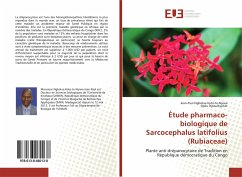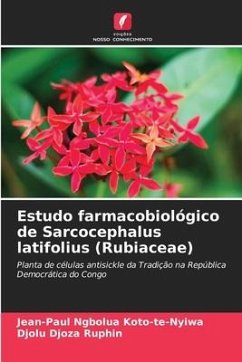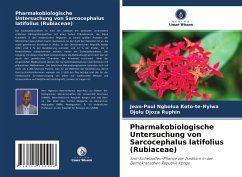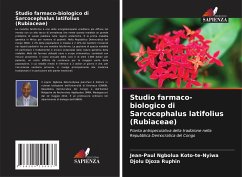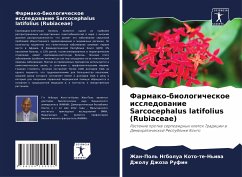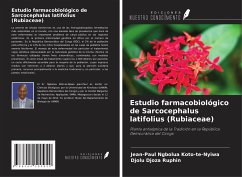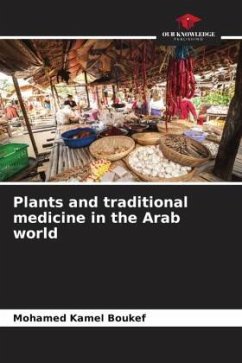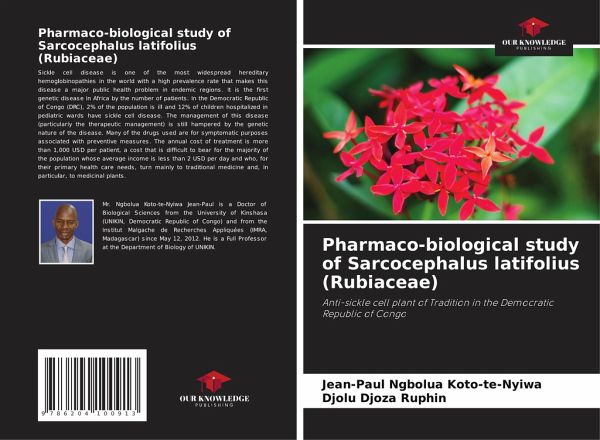
Pharmaco-biological study of Sarcocephalus latifolius (Rubiaceae)
Anti-sickle cell plant of Tradition in the Democratic Republic of Congo
Versandkostenfrei!
Versandfertig in 6-10 Tagen
27,99 €
inkl. MwSt.

PAYBACK Punkte
14 °P sammeln!
Sickle cell disease is one of the most widespread hereditary hemoglobinopathies in the world with a high prevalence rate that makes this disease a major public health problem in endemic regions. It is the first genetic disease in Africa by the number of patients. In the Democratic Republic of Congo (DRC), 2% of the population is ill and 12% of children hospitalized in pediatric wards have sickle cell disease. The management of this disease (particularly the therapeutic management) is still hampered by the genetic nature of the disease. Many of the drugs used are for symptomatic purposes associ...
Sickle cell disease is one of the most widespread hereditary hemoglobinopathies in the world with a high prevalence rate that makes this disease a major public health problem in endemic regions. It is the first genetic disease in Africa by the number of patients. In the Democratic Republic of Congo (DRC), 2% of the population is ill and 12% of children hospitalized in pediatric wards have sickle cell disease. The management of this disease (particularly the therapeutic management) is still hampered by the genetic nature of the disease. Many of the drugs used are for symptomatic purposes associated with preventive measures. The annual cost of treatment is more than 1,000 USD per patient, a cost that is difficult to bear for the majority of the population whose average income is less than 2 USD per day and who, for their primary health care needs, turn mainly to traditional medicine and, in particular, to medicinal plants.



